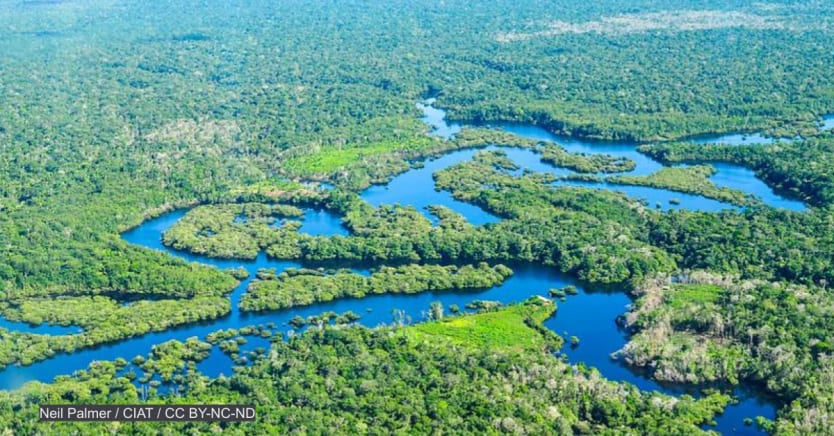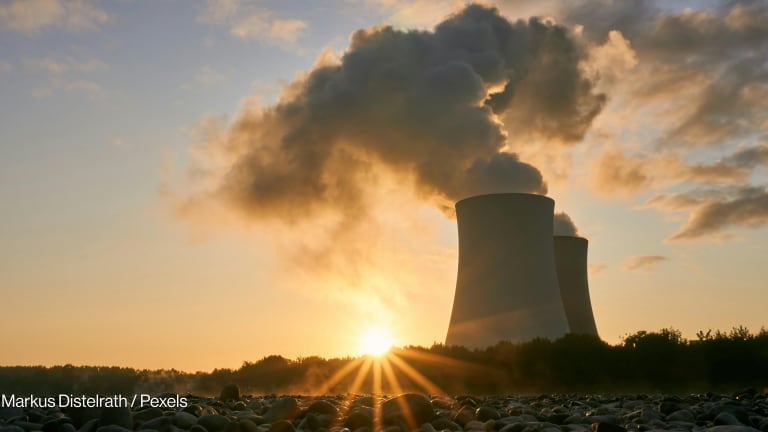
The Inter-American Development Bank has launched its first climate fund to support sustainable development in the Amazon region, which could reach $1 billion at its start — including $20 million in seed money from the bank itself.
IDB President Mauricio Claver-Carone made the announcement Thursday at the bank’s annual meetings in Barranquilla, Colombia. The initial funding will support technical assistance for the creation of the fund, its initial analysis, and scoping and development of projects in participating countries. The funding is still subject to approval by the bank’s board of directors.
“I believe that this is … the most important climate initiative in the world today. And we’re very excited to be leading this effort,” Claver-Carone told reporters. “This initiative is the only initiative whereby all seven countries of the Amazon are participating and have burden-sharing.”
“These policies add to economic growth. These policies are guides, paths of economic growth. This is the philosophy of this initiative.”
— Mauricio Claver-Carone, president, Inter-American Development BankThe sustainable development fund will contain four pillars: the bioeconomy; sustainable management of agriculture, livestock, and forests; human capital; and sustainable cities and infrastructure. The bank said it will focus on strengthening institutions through efficient use of resources and creation of fiscal space; gender and diversity; and forest conservation.
IDB calls the Amazon, home to nearly 30 million people, “critically important to ecosystems worldwide” and to the region: It stores net carbon emissions; regulates air quality; and provides an estimated 40% of the freshwater in Latin America. More than 5 million people of African descent live in the region, along with 1.5 million Indigenous people.
Brazil, Bolivia, Peru, Ecuador, Colombia, Guyana, and Suriname are participating in the fund — Venezuela and French Guiana are not.
The Climate Finance Challenge
This Pro-exclusive report asks what financing is needed to achieve global climate goals, including insights into the data and key players. Get the report.
The Green Climate Fund is working with IDB on a joint program to support the bioeconomy pillar that could be worth up to $775 million. Claver-Carone said other European donors have expressed interest in joining the fund, so he anticipates the facility will start off with around $1 billion.
In 2019, Amazonian countries asked IDB to create a framework for economic development in the region as part of the Second Presidential Summit of the Leticia Pact, which expanded regional cooperation in protecting the Amazon. The countries will coordinate with IDB and the Amazon Cooperation Treaty Organization on the fund’s implementation.
Shortly after he’d taken office last year, Claver-Carone told Devex that IDB was too dependent on other climate funds to finance projects in Latin America and that the Caribbean and would develop its own fund. Sustainable development is urgent for the region’s development: IDB estimates that by 2050, 2% to 4% of its gross domestic product will be lost to rising sea levels, temperature increases, and changes to rainfall patterns.
Claver-Carone said Thursday the initiative has strong support from governments in the region.
“We have the political will, and now with us, there’s also the tools and financing to reach our goals,” he said.
Juan Pablo Bonilla, manager of the IDB’s climate change and sustainable development sector, said the bank’s role will be one of coordination to mobilize money for the fund. He described the next five years as “the tipping point” for the health of the Amazon and climate change, but said the region will need 10 or 15 years to really change the way development is done and see positive results.
Bonilla said it is the bank’s responsibility to help support countries as they work to meet climate commitments, such as their nationally determined contributions as a part of the Paris Agreement.
“It’s not a zero-sum game. Countries don’t need to choose between economic growth and policies that protect the environment,” Claver-Carone said. “These policies add to economic growth. These policies are guides, paths of economic growth. This is the philosophy of this initiative.”
Update March 23, 2021: This article has been updated to reflect the nature of the Green Climate Fund's involvement with the IDB facility.








